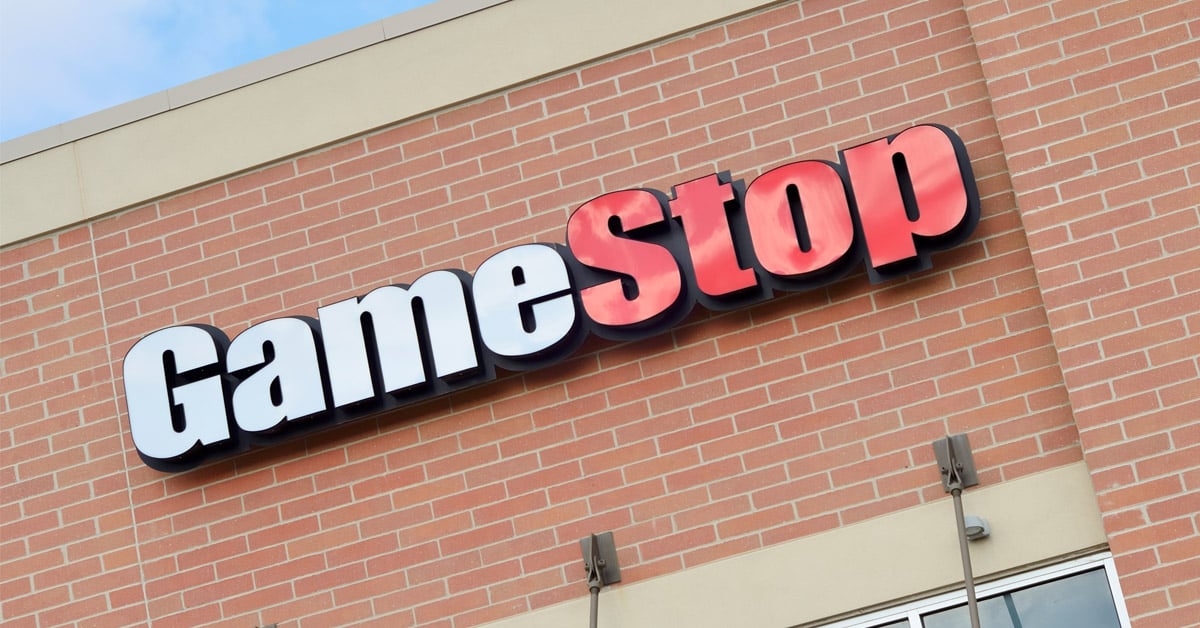If you’re anything like me and most of the people I know, the extent of your investment knowledge is “money + retirement account = good.” So, when Wall Street investors and observers started melting down on Wednesday, I had a hard time understanding what was going on and what it all meant.
Luckily, I work at a business school, so I turned to Kogod’s finance professors to help me make sense of it all—who then promptly referred me to the experts running Kogod’s Student Managed Investment Fund (SMIF) and Real Estate Investment Trust (REIT).
Within hours of receiving my questions, Jacob Brawley (SIS/BA ’22), Justin Levine (Kogod/BSF ’22), Ryan Malloy (Kogod/BSF ’22), and Benjamin Shuster (Kogod/BSF ’21) had already assessed the situation and fired off answers faster than most hedge fund managers can make a Reddit account. And although the situation continues to evolve in ways even seasoned analysts can’t predict, Brawley, Levine, Malloy, and Shuster have provided the comprehensive (and comprehensible) answers that will allow you (and me) to keep up with new developments in the coming days and weeks—and maybe even years.
Q: To start, what has been happening in the stock market that has investors and financial analysts in such a tizzy?
.jpeg?width=432&name=Benjamin%20Shuster%20(KogodBSF%2021).jpeg)
Shuster (SMIF portfolio manager): Over the past month, we have seen very unusual trading with certain securities such as GameStop (GME), AMC Theaters (AMC), Blackberry (BB), Nokia (NOK), etc. These are very weak companies in the stock market because of their weak fundamentals (balance sheet, income statement, and cash flows) and the lack of direction these companies hold moving forward. A rational investor would most likely not purchase shares of these companies for a long-term investment, and instead, we would see a lot of short selling.
This year we have seen a lot of short selling of these securities by hedge funds, but we have also seen major buying volume of these securities by retail investors. These retail investors aren't purchasing these securities because they think these are good companies, but instead, they're looking to hurt these hedge funds through a "short squeeze." Essentially, this frustrates wealthy investors and financial analysts because these trades are made to hurt hedge funds and have also caused irrational valuations for certain companies.
Q: What is short selling?
Shuster: Investors execute short selling when they believe a security will decrease in price. To execute a short sell, an investor borrows shares of a security from a broker and then immediately sells those shares to the market. At some point in the future, the investor needs to repurchase those securities and return them to the broker. The investor's goal is that by the time they need to return the shares to the broker, the security price will have decreased. The difference between the price of selling the security and the price of repurchasing the security is the investor's profit.

Levine (SMIF fund manager and portfolio strategist, REIT fund manager): For example, if you believe that a stock’s price at $100 is too high and will be lower in the future, you would borrow a share of that stock from a broker and then sell it on the market. Theoretically, if the share drops to $90, you can close out the short sell by repurchasing the stock at $90, return it back to the broker you bought it from, and receive a $10 profit from the broker. This also works backwards, though—if the stock value rises, you may need to pay more to close out the short sell, and if losses become too large, you could be forced to close the short sale, making it quite a risky tool for speculation but a strong tactic if utilized for risk management of a portfolio.
Q: What are hedge funds?

Malloy (SMIF portfolio manager): A hedge fund can be thought of as a partnership between a fund manager and investors who pool their money together. Hedge funds employ various strategies to earn active returns, or alpha, for their investors. They trade in relatively liquid (easily turned to cash) assets, such as equities, to make use of complex trading, portfolio construction, and risk management strategies for the sake of protecting their investments from market uncertainty while generating positive returns in bullish and bearish markets. The name of the game is maximizing profits while minimizing risk.

Brawley (SMIF and REIT fund manager): One of the ways hedge funds may look to generate these returns is by short selling, or going short, a stock which they expect to go down.
Shuster: Hedge funds have fewer Securities and Exchange Commission (SEC) regulations compared to mutual funds, because they're only available to accredited investors. Since they're actively managed, they're also able to charge more fees. A typical hedge fund would charge a 2 percent management fee and 20 percent off of profits. In comparison, a mutual fund can charge a 0.5 percent management fee and 0 percent off of profits. Hedge funds can use their capital to buy oil or bitcoin, short stocks or bonds, give out loans, and anything else they would want to do.
Q: What is the subreddit WallStreetBets and what have they done?
Brawley: WallStreetBets is a collective of retail traders on Reddit who share trade ideas, research, and other information regarding investing. They have been branded as high-risk speculators, and the subreddit thrives off of the sharing of monumental gains or losses on positions of exceptionally high risk. Although the subreddit also contains content pertaining to legitimate investment research and investment-related content, the subreddit’s search for high returns is rivaled only by their distaste for institutional investors.
Malloy: Simply put, the subreddit’s description portrays itself as if “4chan found a Bloomberg Terminal.”
Shuster: There is no prominent leader of the group, but they have been able to find a way to get their message out through Reddit and Twitter. When the group can come to an agreement on a small market cap security (market cap of $300 million to $2 billion), they can cause significant market movement. WallStreetBets has successfully generated major market movement through their rally of buying stocks like GameStop, AMC Theaters, Blackberry, Nokia, etc.
Q: What effect did the WallStreetBets investments have on hedge funds?
Shuster: WallStreetBets had a massive effect on hedge funds, causing around a $5 billion loss for them. One specific firm, Melvin Capital, had a significant short position in GameStop and eventually had to accept a $2.75 billion investment from outside funds to stabilize themselves. One external fund that helped Melvin Capital is another hedge fund group, Point 72, which gave them $750 million. Even with this assistance, Melvin Capital and other hedge funds are still in trouble as GameStop continues to trade at record highs.
Malloy: However, the effect WallStreetBets had on GME’s valuation was not harmful to all hedge funds. Scion Asset Management reportedly owned 1.7 million shares of GameStop, worth approximately $17 million towards the end of September. Michael Burry, an American physician, investor, and founder of Scion Asset Management, became famous during the Great Recession when he placed a billion-dollar bet against the US housing market and won. The “Big Short” investor held on as shares soared up to 145 percent on Monday morning, valuing Scion’s stake at $271 million during Monday’s peak.
Q: Why did WallStreetBets choose to buy the GameStop stock as opposed to any other stock?
Shuster: There are two main reasons WallStreetBets decided to buy GameStop as opposed to any other stock. First, some members believed that GameStop was an attractive value play, which means they thought the stock was worth more than its market value. Secondly, they noticed some hedge funds shorted GameStop, so WallStreetBets viewed this as an opportunity for revenge on hedge funds because of the lack of punishment they received after the 2008 financial crisis. Overall, GameStop is one of the most highly shorted stocks in the market, which created this opportunity for retail investors to hurt these hedge funds.
Malloy: What started as a meme quickly transformed into a glaring middle finger to some of the most prestigious banks, hedge funds, and financial institutions on Wall Street. It was analogous to a David versus Goliath story where the small guy, or underdog, was able to take down a monolith of power and dominance.
Brawley: There is an “us against them” mentality which has long existed between retail and institutional traders, which has been allowed to flourish within the confines of WallStreetBets. In recent months and years, WallStreetBets has slowly gained national traction, with occasionally being mentioned, albeit dismissively, on prominent programs such as CNBC. This dismissive attitude from both CNBC and institutional investors prompted WallStreetBets members to showcase their ability to impact stock prices.
Q: Is what WallStreetBets did legal?
Brawley: Nothing about the short squeeze, gamma squeeze, or the collusion of WallStreetBets traders to artificially pump the price is illegal, per se. So long as there is no evidence of insider trading, it seems that nothing illegal was done and, in fact, these types of pump and dump schemes are not uncommon.
Shuster: However, a pump and dump requires the investor to own the stock and then give out false and misleading recommendations about the stock to boost the price. WallStreetBets have been completely transparent about why they are buying GameStop.
Levine: The closest illegal act that could be brought up against WallStreetBets would be market manipulation. There is nothing illegal in telling a group of people what they should and should not buy in terms of stock advice, which was not binding and not from a professional. The cult-like approach to purchasing GameStop shares was a personal decision from each and every investor and was not a single entity focusing on market manipulation. Instead of it being an illegal act, the reality is that retail investors banded together which created a cause-and-effect reaction in the market, and in a free market, that’s not only legal but should also be encouraged.
What should be focused on more is how trading platforms like Robinhood halted trading for securities like GameStop during the time in which the short squeeze was exacerbated. What this did was allow hedge funds who were experiencing major losses to trade while blocking out the retail investors who were battling with them.
Q: Some business commentators have been calling for new regulations because of this situation. Do you think that’s a good idea? What do you think those regulations would entail?
Brawley: Regulations are a slippery slope. While there is a point to be made that pump and dump schemes in and of themselves are inherently manipulative and work contrary to general efficient market theory, I believe there is a field of behavior finance for a reason. I have long believed markets are not efficient, and they can be exploited in whatever way an investor may see fit. Additionally, because many investors may be reluctant to take losses due to an irrational belief that stock prices may return to “normal” levels, losses can be magnified. Investors refusing to exit positions or taking on over-leveraged positions is the fault of the investor, not the market. As such, I would be cautious of any regulations that attempt to limit the ability to freely trade.
Shuster: The biggest problem with market regulations is their loose definition of market manipulation. Historically, it has been challenging for regulators to prove that investors are guilty of market manipulation, because they need to prove that the investor spread false information to increase the price. I believe regulators should strengthen the definition of market manipulation, because it would make it easier to prosecute investors that commit market manipulation. It is important to note that this shouldn't only be for the retail investors but also the hedge funds. There is plenty of evidence that hedge funds have been guilty of this as well.
Levine: I think the retail investor needs to be a main priority of regulations, specifically ensuring that they can invest freely. The reality is that retail investors are an extremely important financial institution, and it’s important to ensure that they have free access to markets as a fundamental right, just as any hedge fund or institutional investor.
Q: Do you think the success of investors in WallStreetBets will spur more small investors to band together?
Brawley: I find the banding together of smaller investors has become more prevalent as investing and financial literacy has become more prominent in American society. I doubt that the coordination needed to see something like the GameStop squeeze will occur with any consistency. Despite this, I think investors, whether new or old, will continue sharing ideas for trading on platforms such as Reddit.
Shuster: What WallStreetBets has done with GameStop is historical and something I believe will be tough to beat moving forward. I believe more small investors will band together and try to make more disruption moving forward. However, these are retail investors, which means they most likely have limited capital. At the end of the day, these hedge funds and banks have a lot of capital and control over the markets. I am not sure if we will see something like GameStop happen again for a while.
Levine: I don’t think the GameStop phenomenon will be a continuing reflection in the market, where retail investors band together and develop short squeezes or create large volatility. What I do think will occur is that there will be more value placed upon the voice of retail investors.
Malloy: Over past years, the trend of growth plays on Wall Street have trended towards value plays, so for the most part, I would have to argue that no, I don’t believe it will spur more small investors to band together.
Q: A user in WallStreetBets penned an open letter to Melvin Capital stating that the subreddit’s mass purchase of GameStop stock was punishment for the hedge fund’s role in the 2008 financial crisis. Do you think we will see Millennials—a generation disproportionately impacted by lower earnings and less wealth—and Gen Z changing the stock market and how we invest as they become more prominent in business and politics?
Brawley: I have no doubt that in the future we will see growing restrictions in the investment world. Millennials and Gen Z watched as many institutions were bailed out during the 2008 crisis, and I would not doubt if in the future there are limits on the types of financial products that can be traded.
Malloy: I believe more and more Millennials and Gen Z will become active in the stock market. With that will most likely come new platforms to trade on, but for the practice as a whole, I do not believe the entire market will be dictated by a forum like WallStreetBets.
Shuster: The WallStreetBets buying philosophy has started a new investment strategy we haven't seen take off in the market until this year. When you look up an investment strategy, you'll most likely find these results: value investing, growth investing, momentum investing, contrarian investing, and more. WallStreetBets created the "Reddit Rebellion," which could start a new investment style for younger people surrounding "rebellious investing." This unique investment style would entail finding investment opportunities to hurt Wall Street and wealthy investors.
Q: Will hedge funds and the effect they have on the stock market come under new scrutiny?
Shuster: As of right now, I would argue yes. In the past, hedge funds have had a lot of freedom with their investment endeavors and didn't have a lot of government oversight due to the gatekeeping of hedge funds. Looking at how Melvin Capital has been affected due to the short squeeze will definitely get regulators’ attention. However, hedge funds remain very powerful and will try to avoid being regulated moving forward. This will be an interesting development to watch over the next few months.
Brawley: I see this debate moving away from hedge funds quickly and instead toward the impact that social media and zero commission trading has on the market. Behavioral finance has long predicted that bubbles, short squeezes, and subsequent crashes will happen with imperfect investors making imperfect decisions. The question now is how social media has changed how these events occur and with what frequency. Hedge funds may receive the bulk of scrutiny for weeks to come, but I think bigger questions have been raised about how social media and zero commission trades have changed how the markets operate.
Malloy: I could potentially see some hedge funds receiving scrutiny for contributing to the over-leveraged short position of GME in the market, but other than that, I don’t believe much else is at stake for hedge funds and the effect they have on the market. At the end of the day, hedge funds are staples of our financial institutions and are kept in place because they typically help markets by providing liquidity and improving price efficiency.
Levine: The bigger question is how hedge funds will work alongside retail investors who have proven they can be just as powerful a force in the market. Hedge funds have utilized the same free market forces to develop short squeezes, only to a less volatile extent. However, the use of hedge funds—which only serve high-end investors—may come under scrutiny, as those funds should not and will not come at the expense of retail investors.
Q: Any final thoughts?
Levine: The most valuable and expensive asset on Wall Street is information. Due to retail investors’ access to tools like Google, Yahoo Finance, Robinhood, etc., they now have the ability to compete on a level playing field. The ability to build out computer financial models allows retail investors to essentially operate with the same information that hedge funds do. Twenty years ago, the GameStop phenomenon would’ve been nearly impossible due to the amount of asymmetric information in the market only available to institutional investors.
Shuster: Some retail investors will inevitably get hurt when the short squeeze is over. Everyone in GameStop right now should be aware of that risk and understand the consequences. I have read that some retail investors have put their entire life savings into this stock, both to make money and hurt the hedge funds. That is a very risky investment decision and has a high chance of backfiring on them. This might be one of the main arguments from regulators to try and avoid a future rebellious play.
Lastly, I believe what WallStreetBets has done with GameStop proves we need to question the efficient market hypothesis (EMH). The EMH states that a company's share price reflects all available information and that stocks trade at their fair market value. WallStreetBets was able to skyrocket the price of GameStop by creating a "fake" demand for it. GameStop is not at its fair market value to most investors’ eyes. We can call this "friction" in the market for now, but I see this having long term effects moving forward. Hedge funds have done this all the time in the past, and this is one of the very few times retail investors have done the same. Once again, future regulations will give us an idea of where this investment style can go.
